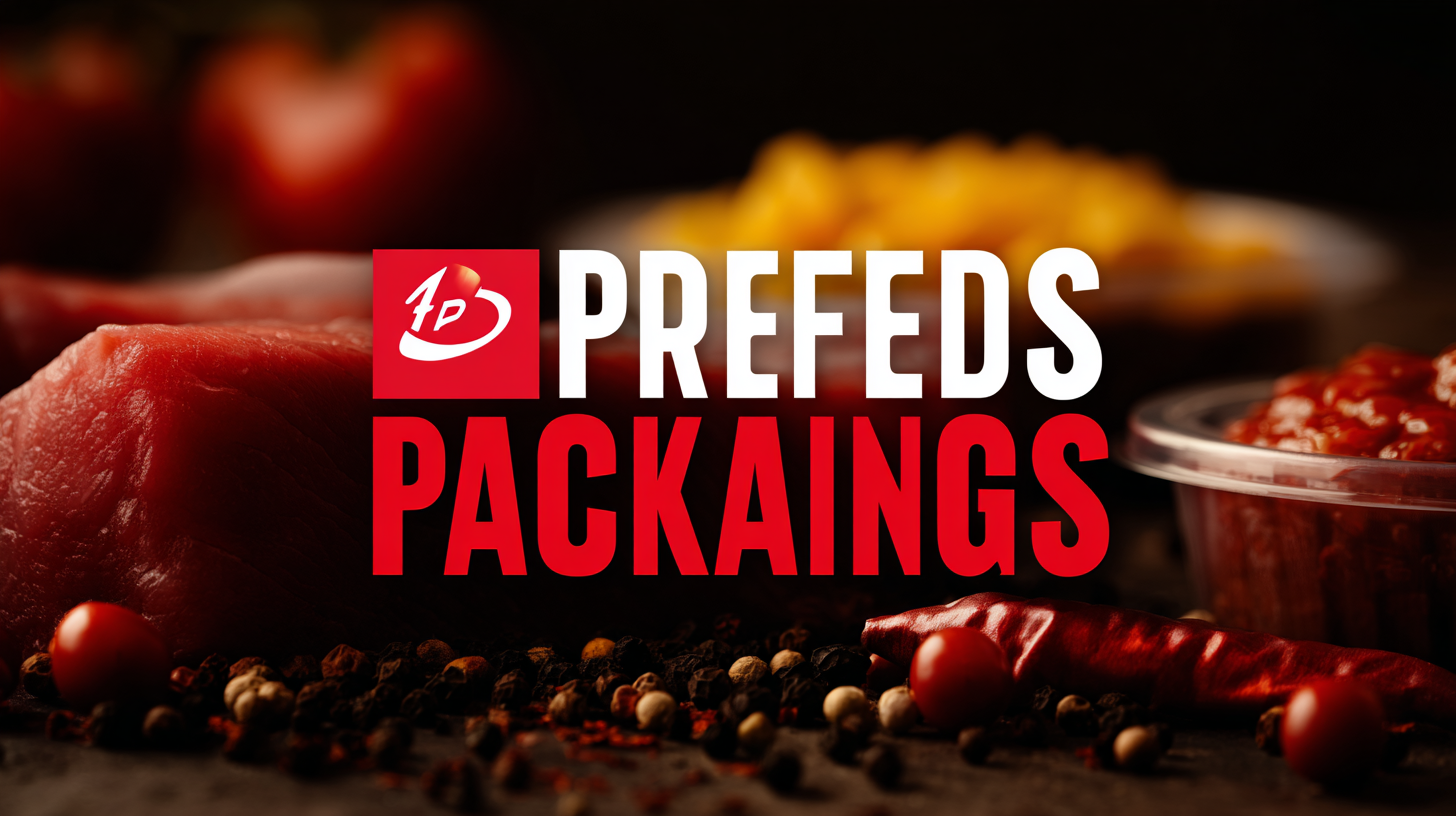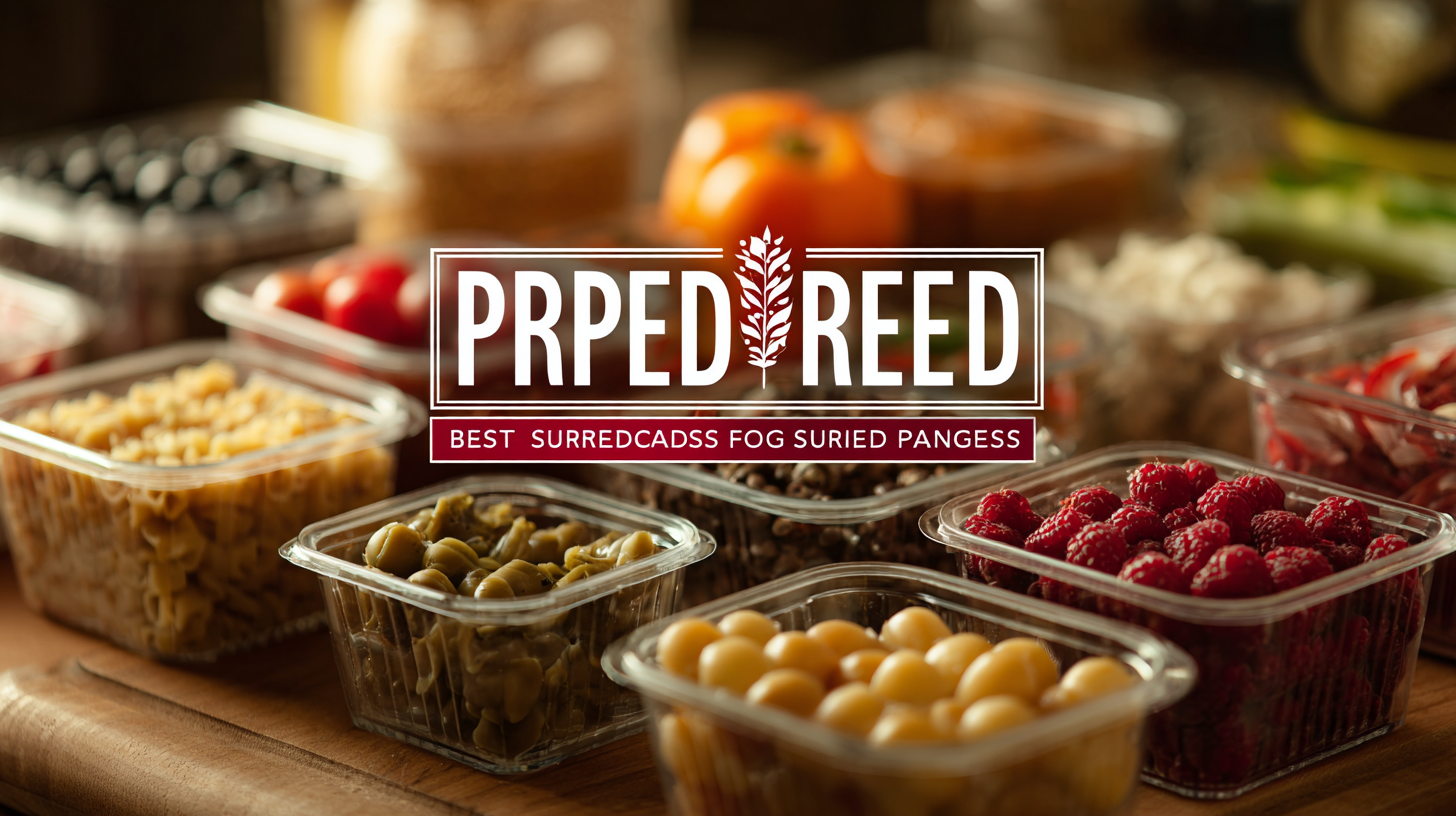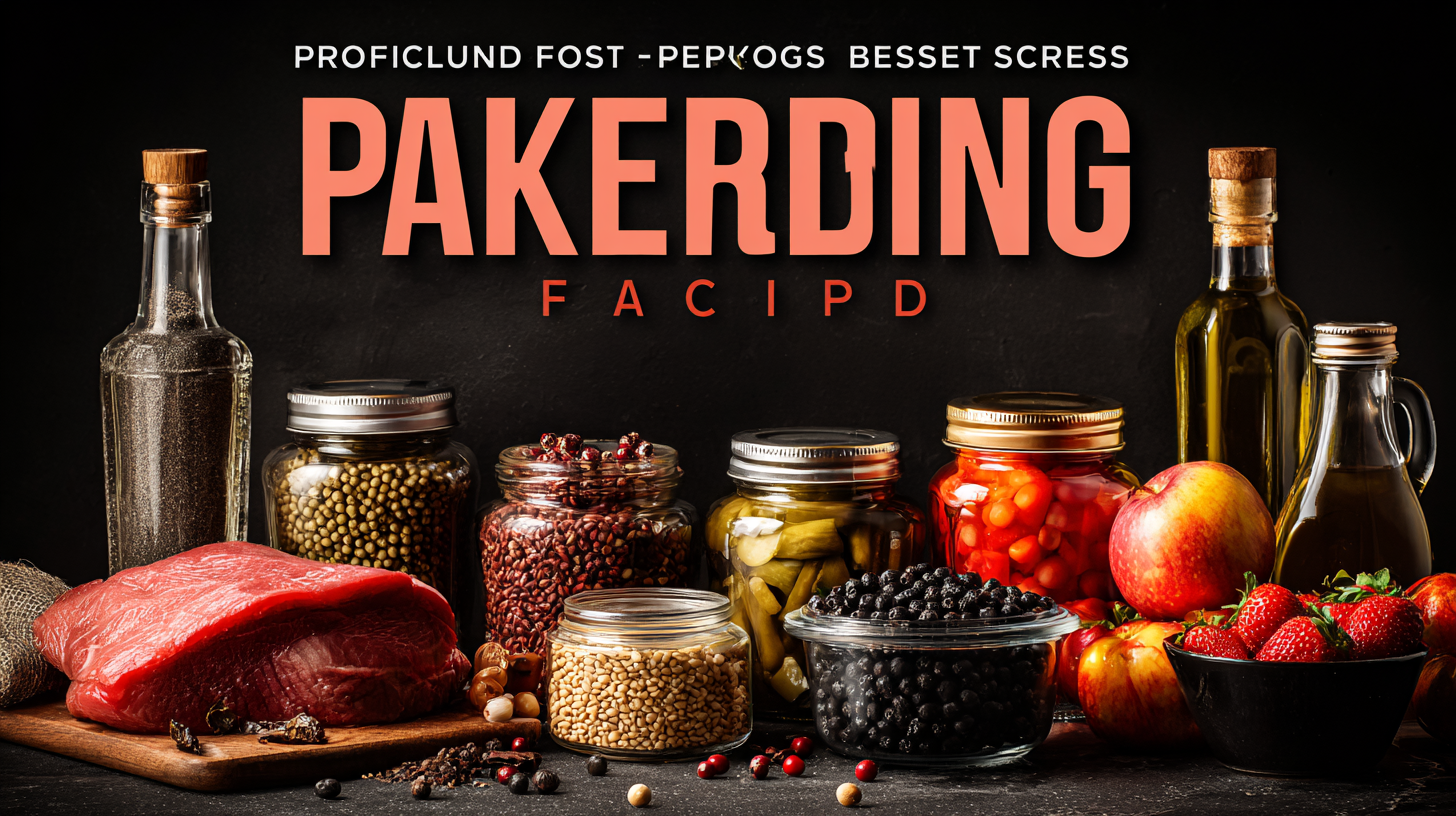Unlocking Success in Best Prepared Foods Packaging: Proven Supplier Search Strategies with Data Insights
As the prepared foods packaging industry continues to evolve, data-driven insights are becoming essential for identifying successful supplier relationships and meeting market demands. According to a recent report by Mordor Intelligence, the global prepared foods packaging market is projected to reach USD 82.1 billion by 2025, driven by increasing consumer demand for convenience and ready-to-eat meals. This significant growth underscores the necessity for brands to implement strategic supplier search strategies that are not only cost-effective but also enhance product sustainability. By leveraging data analytics and market insights, businesses can unlock new opportunities within the prepared foods packaging sector, ultimately leading to improved packaging solutions that align with consumer preferences and industry trends. In this blog, we will explore proven strategies for sourcing suppliers that cater to the dynamic landscape of prepared foods packaging, ensuring your brand stays ahead of the competition.

Understanding Industry Production Standards in Prepared Foods Packaging
In the prepared foods packaging industry, adhering to strict production standards is crucial for ensuring food safety and maintaining consumer trust. According to a report by the Food and Drug Administration (FDA), over 60% of foodborne illnesses are linked to improper packaging practices. Thus, companies must stay updated with these standards, which encompass material safety, labeling requirements, and environmental considerations. The Global Food Safety Initiative (GFSI) emphasizes the importance of implementing Hazard Analysis and Critical Control Points (HACCP) in packaging operations to mitigate risks effectively.
Moreover, recent market research indicates that the global prepared foods packaging market is projected to reach $208 billion by 2026, growing at a CAGR of 4.5%. This growth underscores the significance of investing in compliance with production standards, as companies that prioritize safety and quality in their packaging processes can achieve a competitive edge. By focusing on data-driven insights and trends within this sector, businesses can refine their supplier search strategies, ensuring that they align with best practices and regulatory requirements, ultimately leading to enhanced product quality and consumer satisfaction.
Best Prepared Foods Packaging Strategies and Industry Production Standards
This chart illustrates the percentage of companies implementing various packaging strategies in the prepared foods industry, reflecting trends and insights based on data from recent market analysis.
Key Data Insights for Effective Supplier Selection in Food Packaging
In the rapidly evolving landscape of food packaging, selecting the right supplier is crucial for maintaining quality and efficiency. Key data insights reveal that around 70% of successful food brands prioritize transparency and sustainability in their supplier relationships. According to a recent report by the Food Packaging Association, over 60% of consumers are willing to pay more for products with sustainable packaging, highlighting the importance of aligning supplier capabilities with market demands.
Tip: When searching for packaging suppliers, assess their sustainability practices and certifications. This not only meets consumer expectations but also enhances brand reputation in a competitive market.
Data-driven supplier selection can significantly streamline the packaging process. A survey conducted by Smithers Pira indicated that companies relying on data analytics for supplier selection achieve 15% lower costs and improved supply chain efficiency. By leveraging insights from market research and performance metrics, brands can make informed decisions on supplier partnerships that enhance product visibility and shelf appeal.
Tip: Invest in modern analytics tools that track supplier performance and industry trends to ensure you are choosing partners that align with your strategic goals.
Evaluating Suppliers: Aligning with Industry Standards for Quality Assurance
In today’s competitive landscape, evaluating suppliers for best prepared foods packaging involves aligning with stringent industry standards to ensure quality assurance. Industry reports highlight that approximately 60% of companies that regularly audit their suppliers see a notable decline in non-compliance incidents, showcasing the importance of maintaining a robust quality framework. Leveraging advanced supplier identification and evaluation services equips businesses with insights into potential partners, enabling them to select suppliers who not only meet quality expectations but also deliver on time—critical factors that impact overall productivity and consumer trust.
Moreover, recent initiatives such as the IAEA toolkit for quality and management standards serve as valuable resources, providing a comprehensive overview of globally recognized regulations. This evolving repository assists organizations in staying ahead of compliance standards, further emphasizing the critical role of quality assurance in supplier evaluations. Recent data indicate that companies investing in quality management systems report a 25% increase in operational efficiency, underscoring the necessity for industry players to adopt a proactive approach in evaluating and aligning with suppliers who prioritize quality in their processes.
Strategies for Leveraging Data in Supplier Search Processes
 In the rapidly evolving sector of best prepared foods packaging, leveraging data can significantly enhance your supplier search processes. The right data tools help businesses identify potential suppliers that meet both quality and regulatory standards. By analyzing market trends, performance metrics, and supplier capabilities, companies can refine their choices and foster relationships with those who align with their specific needs. Data-driven insights enable businesses to filter through a myriad of options, unveiling those suppliers who can deliver innovation and reliability.
In the rapidly evolving sector of best prepared foods packaging, leveraging data can significantly enhance your supplier search processes. The right data tools help businesses identify potential suppliers that meet both quality and regulatory standards. By analyzing market trends, performance metrics, and supplier capabilities, companies can refine their choices and foster relationships with those who align with their specific needs. Data-driven insights enable businesses to filter through a myriad of options, unveiling those suppliers who can deliver innovation and reliability.
Moreover, utilizing analytics in supplier search not only streamlines the selection process but also mitigates risk. By observing historical performance data, businesses can assess the reliability and stability of suppliers, ensuring they choose partners with consistent records of quality and delivery. This approach transforms supplier search from a reactive task into a proactive strategy, positioning organizations to anticipate challenges and seize opportunities in the marketplace. Ultimately, harnessing the power of data sets the foundation for strategic partnerships that drive success in prepared foods packaging.
Navigating Compliance: Industry Regulations Impacting Food Packaging Suppliers
In the rapidly evolving landscape of food packaging, compliance with industry regulations is paramount for suppliers aiming to maintain market relevance. According to a recent report by Freedonia Group, the U.S. food packaging market is projected to reach $50 billion by 2027, driving the need for suppliers to navigate an increasingly complex regulatory environment. Key regulations, such as the FDA's Food Safety Modernization Act (FSMA) and the European Union's Packaging and Packaging Waste Directive, set stringent guidelines that suppliers must adhere to in order to ensure food safety and sustainability.
Furthermore, data from the Food and Beverage industry highlights that nearly 60% of food packaging companies have reported challenges in meeting these regulatory requirements, particularly in the areas of material safety and disposal methods. This underscores the importance of proactive compliance strategies. Suppliers who invest in robust compliance frameworks are not only mitigating risks but also gaining a competitive edge, as consumers increasingly prioritize transparency and sustainability in their food choices. By leveraging data insights and adopting best practices, food packaging suppliers can effectively navigate these regulations and unlock new opportunities for success in the prepared foods market.


 中国
中国